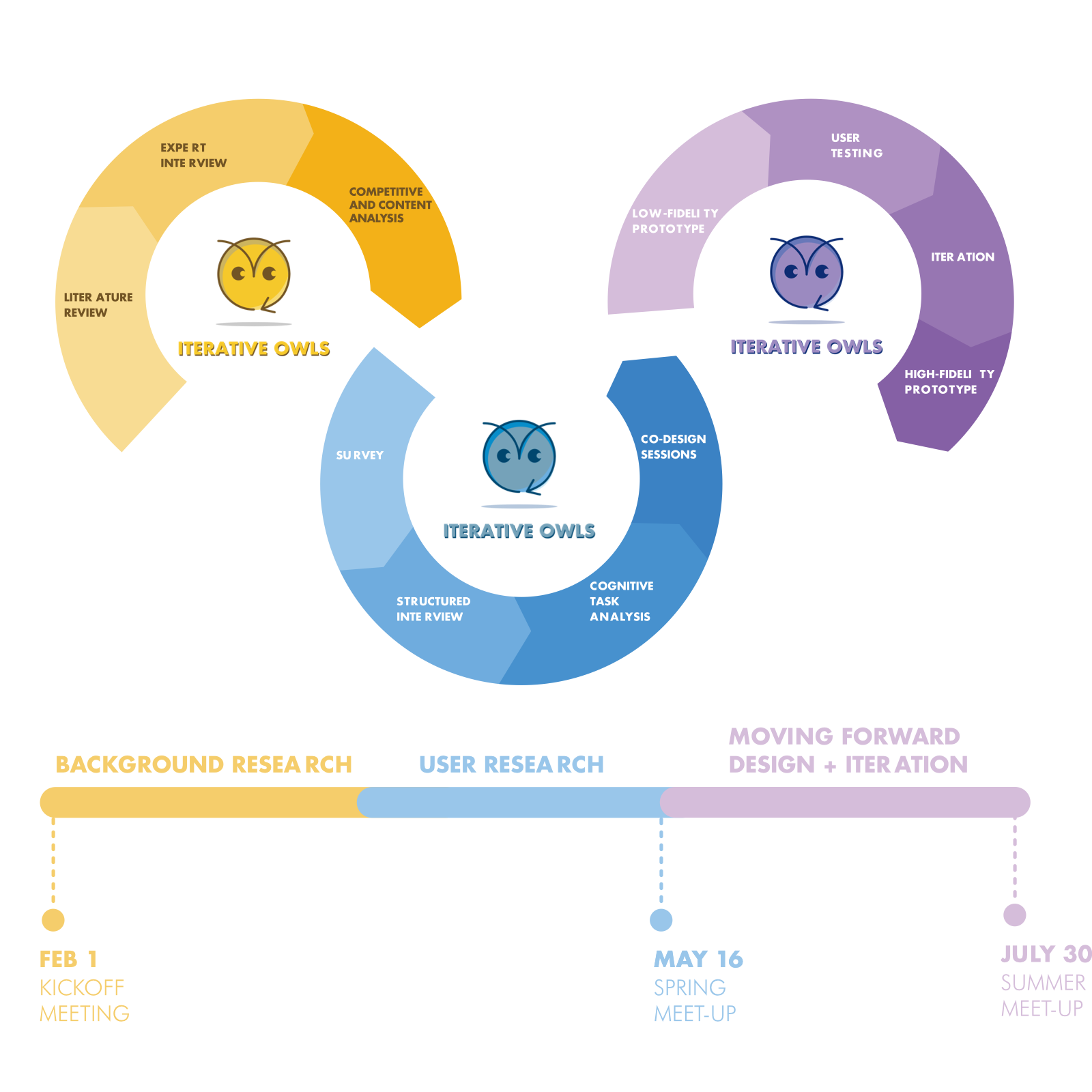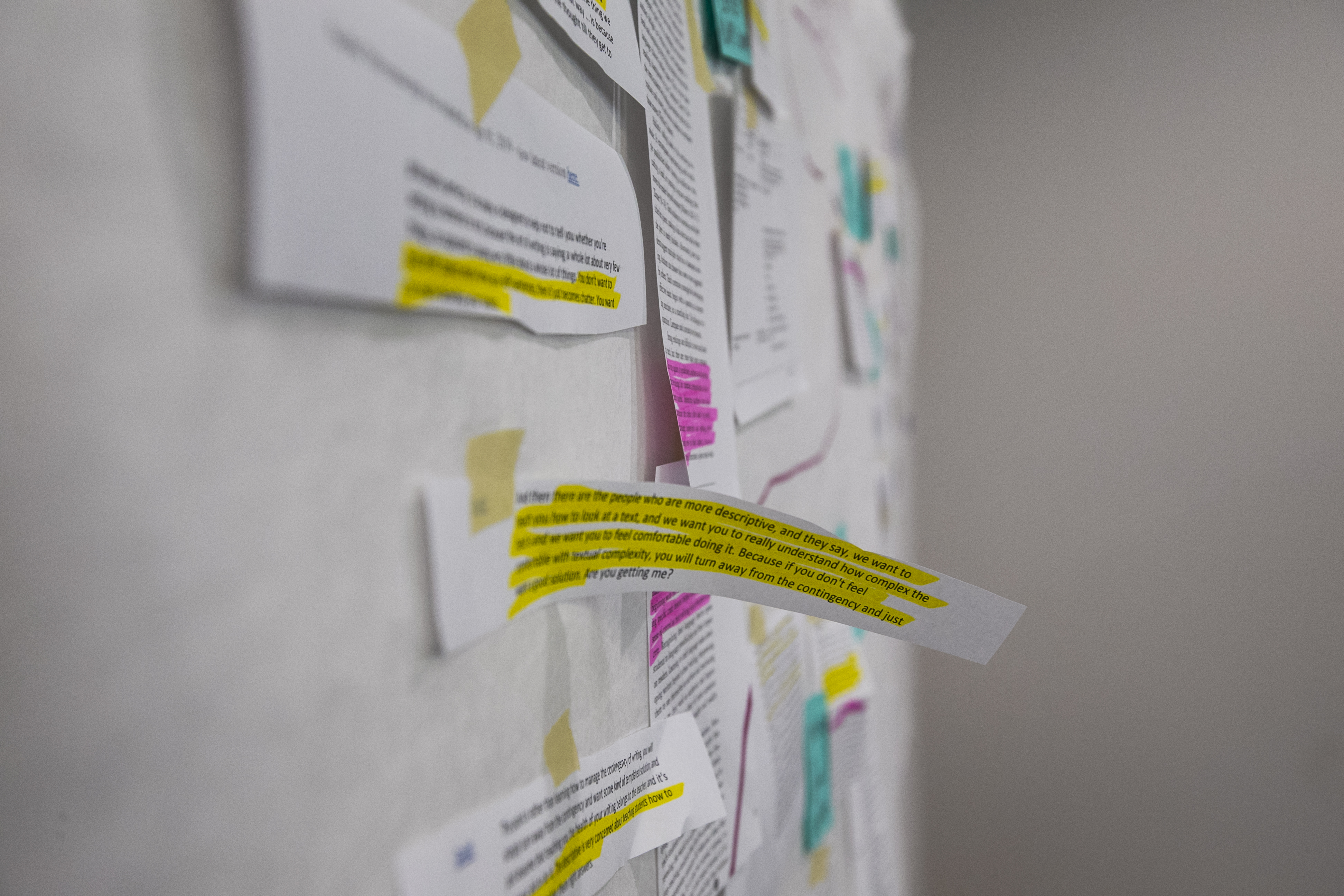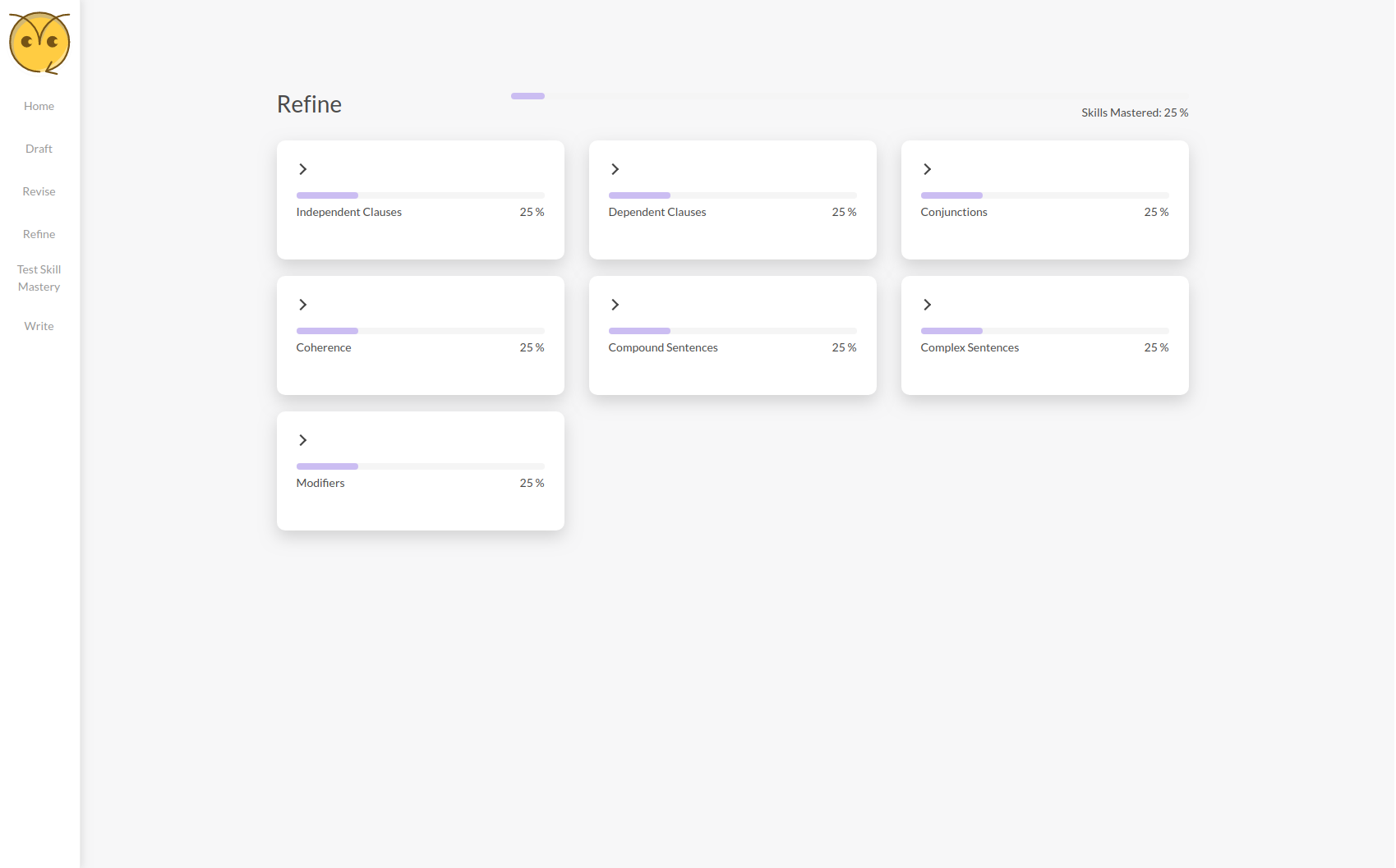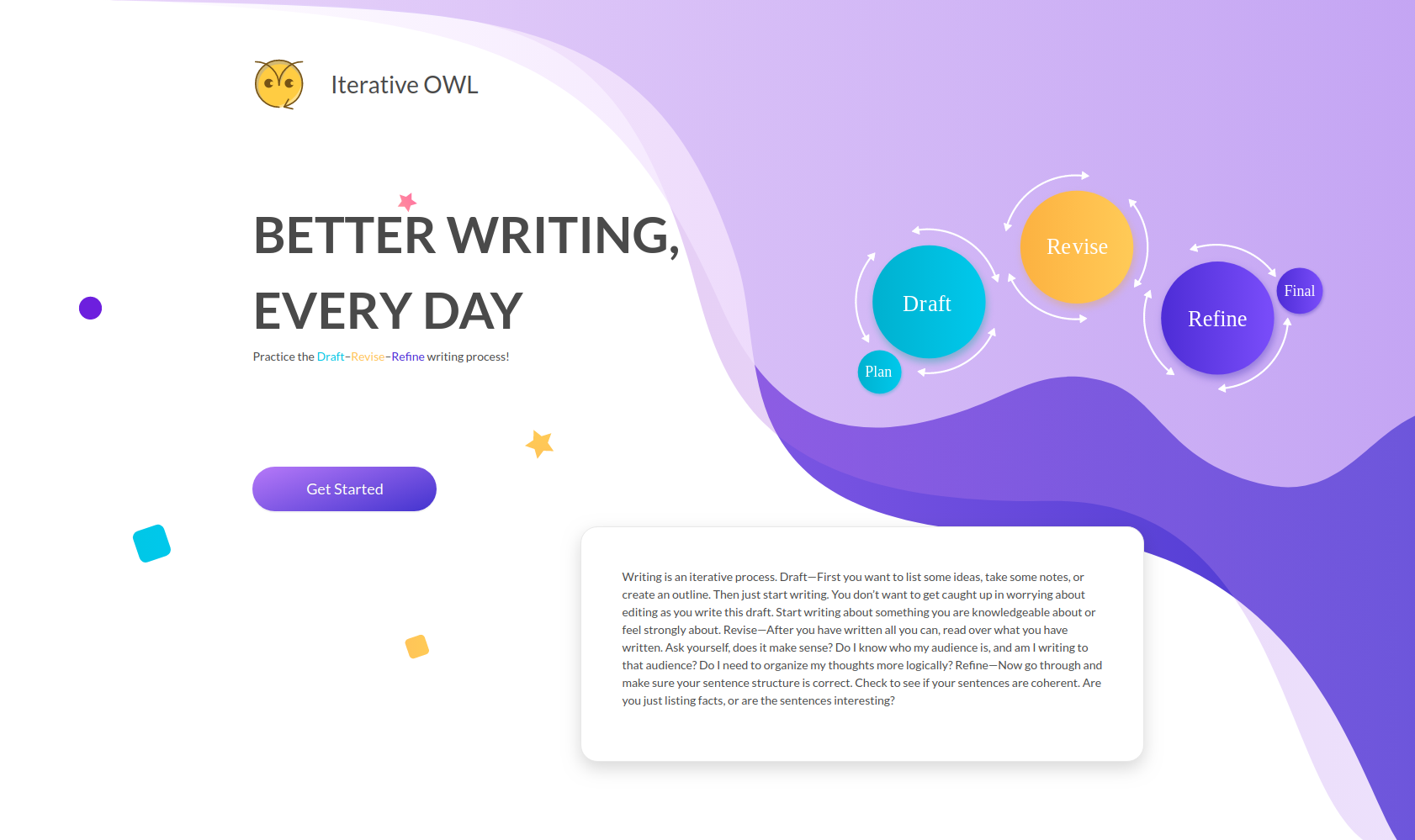Better writing, every day.


Project Overview
How can we better support learners’ writing online? What does supporting writing look like? With such variation not only in the context and content of writing but also in the prior knowledge and writing experiences of learners, the task of supporting writing in any educational context, online or in-person, poses a problem that many educators have sought to answer. Together, two Western Governors University entities, WGU Academy and WGU Labs, and the CMU METALS team, the Iterative Owls, aim to identify causes of poor writing and to develop self-directed, technology-enabled solutions that improve writing skills.
Our Client
Our partnership centers on two entities within Western Governors University: WGU Academy and Center for Applied Learning Science.
Western Governors University (WGU) is an online college where learners can earn an affordable, accredited, career- and competency-focused, self-paced college degree.
WGU Academy is a new entity created to address the college-readiness gap faced by an increasing number of learners. WGU Academy’s courses and programs focus on developing non-cognitive competencies and will provide aspiring learners with a self-directed, affordable, low-risk onramp that prepares them for college success either at WGU or at other institutions.
Center for Applied Learning Science (CALS) is a nonprofit innovation lab with a mission to create meaningful change in student achievement at WGU and the broader education sector.
About METALS
Carnegie Mellon University’s Master of Educational Technology and Applied Learning Science (METALS) is a one-year, interdisciplinary program that trains graduate students to become learning engineers and learning experience designers. METALS students apply science of learning principles, evidence-based research, and large-scale data analysis to design effective educational design solutions.
The METALS Capstone Project is a 32-week course over both the spring and summer semesters. During this team-based research and development project, students gain valuable practical experience while they work with faculty, mentors, and an external client. It is one of the most unique and desirable components of the METALS program.
Guiding Statements
Problem Statement
Many learners of all ages lack confidence and adequate skills in writing for college courses. The problem persists beyond school and often negatively impacts their career success. Our task is to identify the root causes of poor writing and develop self-directed, technology-enabled solutions that improve writing skills.
Hunt Statement
We will research the academic literature and current writing support tools and incorporate learning science principles and techniques to devise a building-block approach to developing high-caliber writing and editing skills. We will consider the context of the learner and create adaptive learning tools that build writing confidence and ability to support academic and professional success.
Process Overview
We began the process by conducting a literature review, encompassing research on writing theory, educational activities, and natural language processing algorithms. We also implemented a competitive analysis, exploring what products already exist.
We then disseminated a survey and conducted structured interviews and cognitive task analysis sessions of our target user group, adult learners 25 to 45 years old.

Design Research
We focused on research during the spring semester. During the first few weeks, we came up with several research questions. With the guidance of these questions, we conducted background research and user research in order to gain insights and synthesize solution constraints for the development phase. We brainstormed solutions and designed eight storyboards for speed dating and client evaluation.
Find out more
Development
Shortly after the Spring Meeting, we reevaluated the eight ideas together with feedback from our client. We synthesized a final solution, and began the prototyping circles. During each iteration, we conducted user testing, collected feedback, and made modifications. After the high-fidelity prototype, we developed a semi-implemented prototype in order to maximize interaction.
Find out more
Our Team
The Iterative Owls will improve teaching and learning practice in writing for learners at the WGU Academy and any learner who wants to become a better writer. We use methods and tools of assessment from cognitive science, computer science, and data science and are practiced in the art of unpacking expertise to create effective educational technologies, data models, and analytic systems.
Lauren Zito
Coordinator
Lauren has an undergraduate degree from Carnegie Mellon University where she studied architecture, psychology, and learning science. She is also a project coordinator at CMU’s CREATE Lab, where she researches and develops educational technology for pre-K through 12th grade.
Kim Larson
Content Lead
As a learning engineer for the Open Learning Initiative at Carnegie Mellon University and Stanford University since 2010, Kim leads development teams of faculty, subject matter experts, learning scientists, UI experts, instructional technologists, and software developers from institutions of all Carnegie classifications to collaborate in creating open and free courseware to support college-level learners. Kim’s primary interests—and the focal areas that underpin her work—are incorporating new learning theories through assessment activities, measuring the effectiveness of new delivery models on student learning.
Jiaqi Wang
Design Lead
Jiaqi graduated from Fudan University in China with an undergraduate degree in English language and literatures. She has worked as a product design intern and a UX design intern in industry with project managers, developers, and user researchers. Jiaqi is highly engaged in UX practice in day-to-day life and is good at uncovering possibilities in the research and design processes.
Hao Li
Development Lead
Hao has an undergraduate degree in educational technology from Beijing Normal University. He has studied and conducted research projects on how educational technology could help improve learning experience. He has also built projects including Web applications and educational games.

